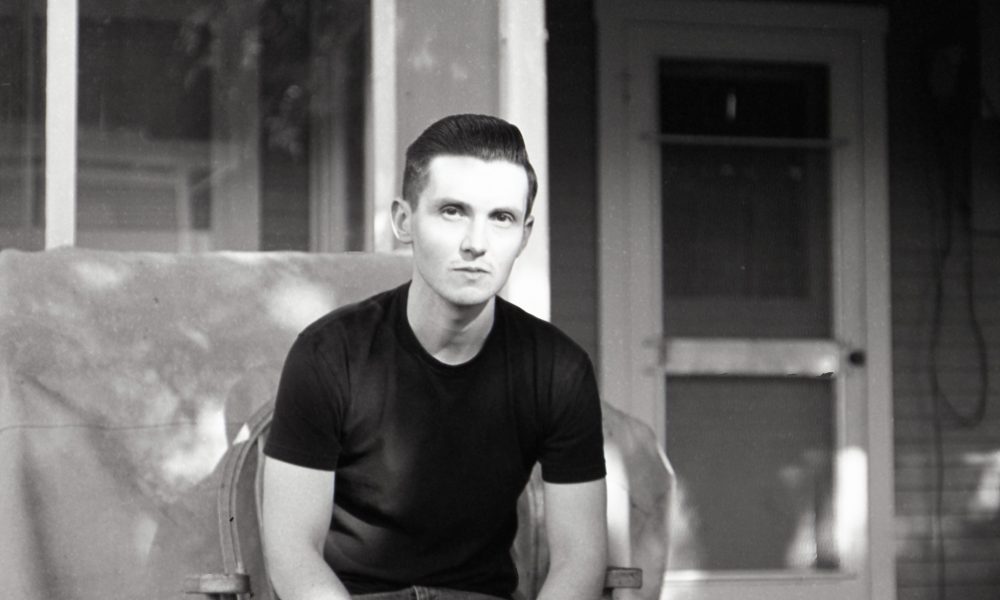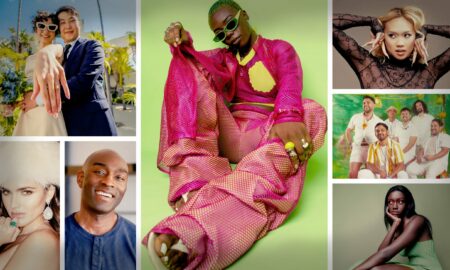

Today we’d like to introduce you to Devon Stewart.
Devon, please share your story with us. How did you get to where you are today?
I was born in Torrance, CA, and am still based in the South Bay. I suppose the best way to describe myself is to borrow a term from one of my favorite musical projects, Celldweller: “creatively schizophrenic.” By this I mean, I have always had a wide variety of interests, and I’ve always been creatively all over the place.
From an early age, I was always coming up with stories, taking inspiration from the movies (both animated and live-action) and cartoons that I watched, and this led me to start drawing. Unfortunately, in middle school, due to a limited support group and a tendency to keep things bottled up and not share what was troubling me, I got discouraged, and for a long time after, gave up on drawing and artistic pursuits, not resuming them again for years.
However, I continued to develop other interests. I’ve also always had a big passion for history and music (which also led me to learn to play guitar), and as time has gone on, I have developed interests in things such as comics, psychology, philosophy, animation, video games (especially narrative driven ones), just to name a few that come to mind. As well, in high school, I came to realize that I had a knack for writing, both creative and academic, and this led me to pursue it as a passion, taking inspiration and lessons from the incredible writing on the many movies and television shows (both animated and live-action, and which would take waaaaay too long to list them all) that I would discover and fall in love with as I went. Ultimately, I find that all of my diverse interests tend to converge into my passions for drawing and writing, and they continue to impact and influence the subject matters I like to tackle with these mediums.
After high school, I went to community college, specifically Los Angeles Harbor College, and after briefly pursuing Computer Science, I rediscovered my love of art and drawing after taking some art classes. After finding a tangible way to pursue art as a career, I graduated from LAHC with three associate’s degrees, as well as that same year having three of my art pieces featured in the school’s Annual Student Exhibition, one of which, my piece “Rise of the Reboots,” won an award for Meritorious Accomplishment in Digital Design, which I consider my first significant artistic achievement.
After graduating from LAHC, I transferred to Cal State University, Long Beach, where I am currently a student focusing on Illustration. While I’d be happy in any job that involves drawing or writing, my dream job is to become a comic artist, as it combines those two passions, as well as giving me full creative control over the direction of the art and story, with no meddling from executives or producers, and in the age of the internet, no meddling from a comic publisher.
Great, so let’s dig a little deeper into the story – has it been an easy path overall and if not, what were the challenges you’ve had to overcome?
I was a shy kid and struggled with socializing, meaning I did not make friends easily, a trend which did not really begin to reverse until the middle of high school, meaning I had a very limited support group among the friends I did have, and since I also tended to keep my problems to myself, as I previously stated, this led me to get discouraged and give up on drawing in middle school. I also suffered from low self-esteem and depression, which led me to be incredibly self-critical and develop a strong belief that nothing I made or did had any value. While I’ve made great strides in overcoming these, my self-critical nature is still there, although I have come to see a small degree of self-criticism as a good thing, as it can drive you to improve.
As well, because I gave up on art when I was in middle school and did not resume it again until community college when I transferred to CSULB, I was suddenly in art classes that were far more demanding, with peers that had been pursuing art since they could hold a pencil. I had to do a lot of outside practice and work almost twice as hard just to catch up to my peers. While I still have areas where I need work and am still endeavoring to get better, I feel confident that I have found my stride and that my art will continue to improve.
Please tell us more about your art.
I am currently focused on studying Illustration, as well as continuing to sharpen my writing and storytelling skills. In addition, I have been studying and learning more about the process that goes into actually making comic books to prepare myself for when I begin to work on my own.
I’d say the two things I’m currently most proud of is firstly, is my writing. I’m very happy with the abilities I have cultivated to tell engaging and in-depth stories while being able to effectively communicate the themes and ideas I have in my head. I feel my diverse interests have been immensely helpful in improving the quality of my writing. While I’m open to writing just about any genre, lately I’ve been heavily inspired by crime dramas and film noir, and the first story I plan to tackle in comics takes inspiration from those genres.
The second is the direction my drawings and Illustrations have gone. While I am experimenting with new ideas, mediums, and styles, and continue to stay open to new styles and approaches, my main drawing style has taken on a black-and-white, almost graphic-like quality that I feel really works well. While I am far from the first or only artist to use a style like this, I feel as though I have started to develop a look to my Illustrations that has real potential.
Is there a characteristic or quality that you feel is essential to success?
1. Have passion for what you do.
This might seem self-evident, but it is crucial to have love and passion for what you do. If you are only doing it because you think it is what you are expected/supposed to do, or that you’re going to make a lot of money, you’re not going to do your best job. You’ll be lucky if it comes out decent.
Your best work comes not only from your skill but your enthusiasm and passion you have for it.
2. Don’t be sensitive to criticism.
This rings true in every field, but it is especially evident in the art world: if you cannot handle criticism, you will not last. Art is a field in which you will never reach a point you cannot improve, and frankly, that’s not something you should even want. Learn not to take criticism, especially constructive criticism, personally, but as an opportunity to improve your work going forward.
To borrow a quote from Gordon Ramsay, “The thicker your skin, the higher you go.”
3. Be patient with your peers and yourself.
Art is a collaborative field. Whether that is school, working in a studio, or networking, you will have to communicate and build good relationships with your peers. You may not like everyone you encounter; you may even find their presence grating. But barring explicit mistreatment or malice on their part, it is important for you to be patient with them. They have aspirations, goals, and passion for this field just as much as you do, so it is important to remember that and be patient and understanding with your peers, even if you don’t always vibe with them.
That patience should extend to yourself as well. You will often find yourself frustrated and being unfairly cruel to yourself when comparing your work to that of your peers. Remember you are always learning and improving, and you don’t have to be the absolute greatest in your field to find success. As long as you are willing to work hard, take criticism, and continue to improve, you’re on a good path.
4. Ambition is good, but keep yourself grounded.
Ambitious and big goals are good, but it is important to have a sense of realism. Not only will this prevent you from making callous mistakes, but it will help you find smarter ways to achieve your goals.
Taking realism into account when forming your aspirations will take you much farther than blind ambition alone.
5. Be open to new ideas and experiences.
If you limit yourself to things you already know, you are effectively handicapping yourself. By being open to new hobbies and ideas, you are not only allowing yourself to find a potential new hobby or passion, you embolden your creative process, and this only makes you stronger as an artist. It may even give you a new idea on how to tackle that creative task that has been giving you trouble.
And who knows? You may discover a path that you are even stronger in and more passionate about.
6. It’s not too late to start.
Whether you’ve been pursuing your dream field since you first started walking, when you entered community college, or even in middle age and beyond, it is not too late to start. There’s no use bemoaning that you didn’t start earlier. There’s nothing you can do to change that, but you can start now. There is no such thing as “too old to start now.” A great example of this is Grandma Moses, who found success in art at age 78.
The only time it is truly too late is when you’re dead. And you’re not dead yet.
7. Your past doesn’t have to define you.
Very cliche phrase, but it still rings true. It’s far too easy to let your past mistakes haunt you and lead you to stew in misery rather than taking any tangible action. Ultimately, your experiences teach you lessons and shape who you are. It’s useless to harp on the past, “what could have been,” or wonder what you could have done differently to change things. To borrow a quote from my favorite video game character, Max Payne: “If you had done something differently, it wouldn’t be you, it would be someone else looking back, asking a different set of questions.”
It’s important to acknowledge your past and make peace with it, but don’t let it prevent you from moving forward and building a life worth living.
8. A good sense of humor is invaluable.
One of best ways I have found to dealing with problems is to develop a sense of humor, including the ability to laugh at myself (my art Instagram name is evidence of this). If you are able to laugh at your problems, even the absolute darkest ones, it takes away some of the power they have over you.
Try your best to turn life’s punches into punchlines.
9. On the qualities I have mentioned, it’s okay if you sometimes fail to live up to them.
As valuable as I find all the traits I just mentioned, we’re all human and we sometimes fail to live up to our ideals. I’ve certainly failed to always live up to these traits, and most likely will again. But it is important to remember that failure is another learning experience, and you can pick yourself up, learn your lesson, and continue to strive toward these ideals.
As O.A. Battista once said, and JFK once quoted, “An error doesn’t become a mistake until you refuse to correct it.”
Contact Info:
- Website: https://www.artstation.com/devonstewart
- Email: [email protected]
- Instagram: https://www.instagram.com/devons_trash_emporium/







Image Credit:
Personal photo taken by Gabriel Gomez.
Suggest a story: VoyageLA is built on recommendations from the community; it’s how we uncover hidden gems, so if you or someone you know deserves recognition please let us know here.



















